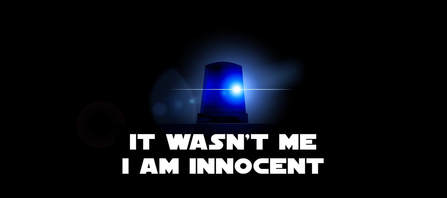 Accusations are strange things. At various times in my life, I've been accused of just odd stuff. Once, while talking with Michelle in a public pool, we were accused (incredibly falsely) of having sex because we were standing close to one another and whispering in an attempt to not disturb the other pool attendees. How embarrassing, not to mention icky! I really can't fathom the physics of what this person thought they saw. Another time, after receiving advice from Duke Divinity School staff on how to register in order to save on the overall cost of education, I was falsely accused by another staff member of intending to deceive the school and steal from the institution that I loved. I was shocked at the internal miscommunication and saddened at the personal nature of the assumptions made about my character. In very different ways, these violations of my integrity were painful, despite the fact that they were patently untrue. The most haunting part of these false accusations, and others like them in my life, has been the reality that I was attempting to do what was right. With the situation itself being misread, I was misread. It wasn't the behaviors I was accused of, unfortunate as they were, but the specter of myself that formed in these people's minds. The distorted version of myself formed in these people's mind looked back at me with a piercing possibility: Are you that man? Even if the answer is no, to look at yourself as that caricature is a frightening endeavor. Though I was quickly vindicated in both cases, there was something missing in each case: a friend seeking the truth, an accuser wanting true justice rather than to inflict punishment.  Of course, there are worse accusations. Those that are true. Some accusations are the entire truth, like the melody of the song, while others ring true like a harmony or support the truth as a rhythm. Any accusation that fits within truth's song stings because we've lied to ourselves, convinced ourselves to listen to the dissonance of a lie and turned our ears to the amelodic falsehoods that seek to rule our worlds. King David fell into such a trap, In 2 Samuel 11-12, we read about King David's forced violation of Bathsheba and then attempt to cover it up, first through the deception of bringing her husband Uriah home from the war. When Uriah wouldn't sleep with Bathsheba - as a sign of his commitment to David, no less - David then conspired to murder Uriah by placing him at the front of the fighting and ensuring his immediate death by telling his generals to pull back Uriah's support and leave him exposed to the Joabite attack. The accusation comes for David when Nathan, a prophet in David's house, speaks to David through a parable where a rich man steals a lamb from a poor man (obviously, one of the major issues even the Biblical authors couldn't see was that women aren't property and deserve much more humane treatment than Bathsheba is given in this entire account). David becomes incensed at the rich man's insensitivity to the poor man's plight, at least until Nathan raises the curtain on his ruse and declares to David, "You are that man!" The accusation breaks David's heart, not because he's been seen falsely, but because he's been seen so true. Yet, someone like Nathan is necessary for truth telling. Nathan is honest, bold, a witness, and a friend. Witnesses are necessary for obvious reasons, for they help to reveal the truth from another perspective. Fortunately, in both of the cases I mentioned above, witnesses came to my defense to speak the truth. Yet, sometimes we're rightly accused of things, and we don't have witnesses like Nathan around to help us honestly assess our culpability. Whether we're blind to our faults or our own harshest critics, we're most often improper judges of our guilt. Nathan's conviction to speak the truth in a way that pursues David's repentance is perhaps the best form of an accusation. Nathan seeks not to shame David, but to make right what was wrong. Justice must be served, but justice is not punishment. Justice is retribution that opens the door to the possibility of reconciliation. Bring people like Nathan into your life, people that are brave enough to accuse you when you're wrong and want to help make it right. People who will witness on your behalf when you're innocent. People who help you bear the accusations that sing the truth in you, those that ring falsely, and those that harmonize enough to sting.
0 Comments
Leave a Reply. |
AuthorSimultaneously a sinner and a saint. Archives
September 2020
Categories |
 RSS Feed
RSS Feed